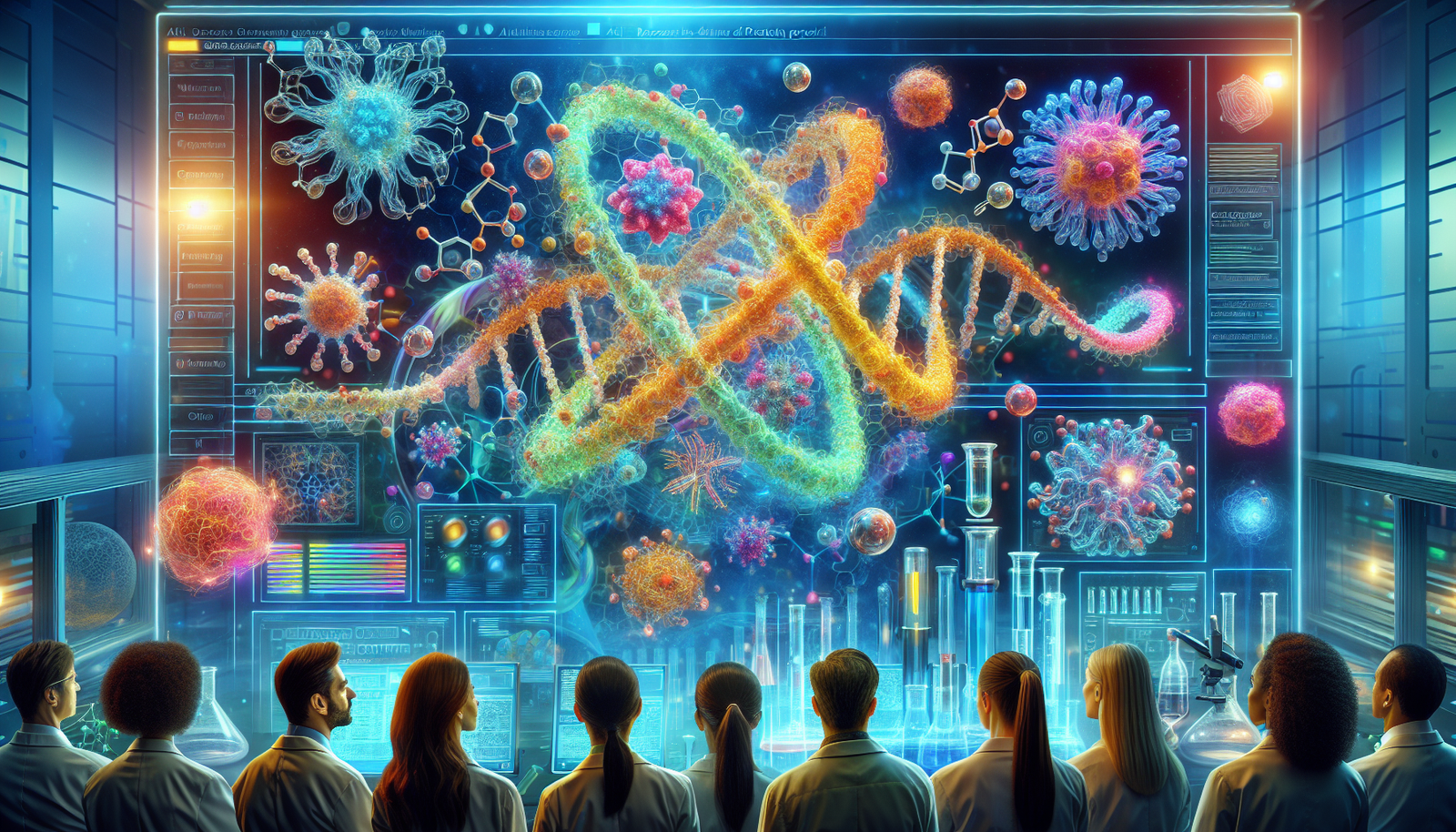The era of artificial intelligence is emerging as a true revolution in molecular biology. This innovative system predicts protein fragments capable of binding to a target or inhibiting its action. These advancements create unprecedented therapeutic possibilities and redefine drug design. The optimization of algorithms allows for accelerating the discovery process while increasing the accuracy of predictions. By confronting the complexity of biological systems, this AI represents a glimmer of hope for treating previously incurable diseases.
AI System and Prediction of Protein Fragments
A significant breakthrough in the field of molecular biology has occurred thanks to an artificial intelligence (AI) system capable of predicting protein fragments. This system not only identifies fragments that can bind to specific targets but also proposes inhibitors that can modulate their actions. Such an achievement could revolutionize the development of new treatments and therapeutic interventions.
The Functioning of AI in Prediction
This AI system relies on sophisticated algorithms that analyze protein sequences to deduce the configurations likely to interact with other molecules. By using databases containing information about protein-target interactions, the AI extracts recurring patterns and proposes optimal structures. The application of this technology could potentially reduce the time needed for drug research and development.
Potential Therapeutic Applications
The clinical implications of this technology are vast. By relying on the ability to predict fragments that can bind to target proteins, researchers can design treatments for various pathologies. From oncology to neurodegenerative diseases, every medical field could benefit from these new approaches. The accuracy of predictions could lead to tailored medications, adapted to specific biological profiles.
Recent Developments
The researchers’ work on this project continues with promising results. The AI’s ability to refine its predictions based on the interactions observed in the laboratory is a key asset. By integrating new scientific discoveries, the system can continually improve its performance, thus promoting continuous innovation in the pharmacological sector.
Repercussions on Current Methodologies
This AI system proposes a radical shift in the way biomedical research is conducted. Historically, drug development relied on laborious trial and error. With this predictive approach, researchers can focus on promising targets, thereby optimizing resources and time. Collaboration between biologists and computer scientists becomes essential to maximize the benefits of this technology.
Future Perspectives
The implementation of AI to predict protein fragments paves the way for phenomenal advancements. With the evolution of technologies and the increase in available data, the efficiency of these AI systems can only grow. Researchers are already envisioning extensive applications in the field of biotechnology, facilitating the discovery of new treatments for diseases previously considered incurable.
Related Links
To delve deeper into the topic, several articles from scientific media provide analyses and updates on recent discoveries in artificial intelligence and molecular biology. The 2024 Nobel Prize in Chemistry recognizes the contributions of leaders in the field of AI, reinforcing the importance of interdisciplinary research. Find more information on the 2024 Nobel Prize in Chemistry, or on the Nobel Prizes in Physics and Chemistry. Projects like those described at the 2024 Nobel Prize in Chemistry testify to the future potential of AI.
FAQ on AI and Protein Fragments
What is an AI system for predicting protein fragments?
An AI system for predicting protein fragments uses advanced algorithms to analyze protein sequences and determine which fragments can effectively bind to specific targets, such as other proteins or molecules.
How does AI function in predicting protein interactions?
AI evaluates complex data on past molecular interactions to model and predict how protein fragments may interact with targets, based on their structure and chemical composition.
What are the advantages of using AI to design protein fragments?
Using AI accelerates the research process, improves prediction accuracy, and reduces costs by automating tasks previously done manually.
Can AI be used to develop drugs based on predicted protein fragments?
Yes, the predicted protein fragments can serve as a basis for developing new drugs, acting as leads for creating compounds capable of targeting specific diseases.
What is the accuracy of the predictions made by these AI systems?
The accuracy of predictions varies depending on the algorithms used, but some AI systems can achieve very high levels of accuracy, often surpassing traditional methods.
What types of diseases can be targeted through protein fragment prediction by AI?
AI systems can help target various diseases, including infectious diseases, cancers, and genetic disorders, by identifying protein fragments capable of interacting with pathological targets.
What are the challenges associated with using AI for predicting protein fragments?
Challenges include the quality of training data, the complexity of biological interactions, and the need to validate predictive models through laboratory experiments.
How can AI improve the discovery of new treatments?
AI can quickly identify promising candidates by simulating interactions and testing thousands of combinations of protein fragments, reducing the time and resources needed to discover new treatments.






